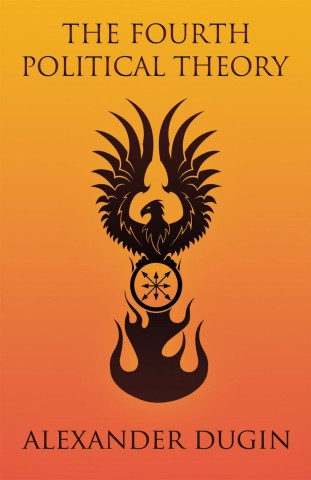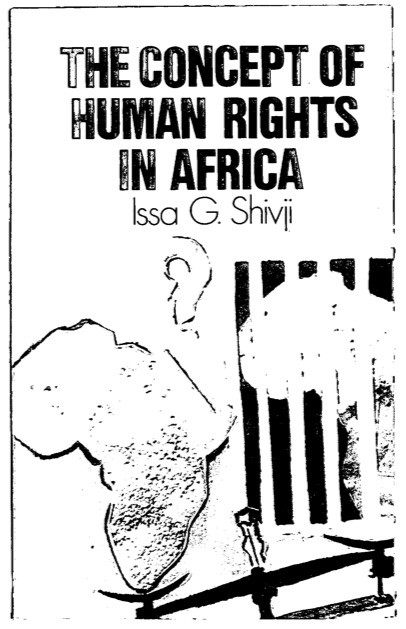I am late to discover Makua Mutua's well cited (over 1,100 as of this post) book "Human Rights: A Political & Cultural Critique" (2002). Published by the University of Pennsylvania Press, this is work that inspired many of the critiques that followed. Highly recommended. A few notes:
"I wanted to explain why I believe that the human rights corpus should be treated as an experimental paradigm, a work in progress, and not a final inflexible truth. It is important that the human rights movement be fully exposed so that its underbelly can be critically examined. I know that many in the human rights movement mistakenly claim to have seen a glimpse of eternity, and think of the human rights corpus as a summit of human civilization, a sort of an end to human history. This view is so self-righteous and lacking in humility that it of necessity must invite probing critiques from scholars of all stripes." (p. ix)
"The movement's apoliticization obscures its true character and the cultural identity of the norms it seeks to universalize. While many cultures and peoples of all political and historical traditions around the world have accepted the idea of human rights, many have wanted to couple their embrace with a degree of originality. This ranges from marginal contributions, on the one hand, to radical reformulations on the other." (p. 1-2)
"… the chapter is fundamentally an attempt at locating—philosophically, culturally, and historically—the normative edifice of the human rights corpus. If the human rights movement is driven by a totalitarian or totalizing impulse, that is, the mission to require that all human societies transform themselves to fit a particular blueprint, then there is an acute shortage of deep reflection and a troubling abundance of zealotry in the human rights community." (p. 13)
"Any valid critique must first acknowledge that the human rights movement, like earlier crusades, is a bundle of contradictions. It does not have, therefore, a monopoly on virtue that its most vociferous advocates claim. I argue here that human rights, and the relentless campaign to universalize them, present a historical continuum in an unbroken chain of Western conceptual and cultural dominance over the past several centuries. At the heart of this continuum is a seemingly incurable virus: the impulse to universalize Eurocentric norms and values by repudiating, demonizing, and "othering" that which is different and non-European. By this argument, I do not mean to suggest that human rights are bad per se or that the human rights corpus is irredeemable. Rather, I suggest that the globalization of human rights fits a historical pattern in which all high morality comes from the West as a civilizing agent against lower forms of civilization in the rest of the world." (p. 15)
"Although the human rights movement arose in Europe, with the express purpose of containing European savagery, it is today a civilizing crusade aimed primarily at the Third World. It is one thing for Europeans and North Americans, whose states share a common philosophical and legal ancestry, to create a common political and cultural template to govern their societies. It is quite another to insist that their particular vision of society is the only permissible civilization which must now be imposed on all human societies, particularly those outside Europe." (p. 19)
"The view that human rights is an ideology with deep roots in liberalism and democratic forms of government is now supported by senior human rights academics in the West. The cultural biases of the human rights corpus can only be properly understood if it is contextualized within liberal theory and philosophy. Understood from this position, human rights become an ideology with a specific cultural and ethnographic fingerprint." (p. 23)
"The adoption in 1948 by the United Nations of the Universal Declaration of Human Rights—the foundational document of the human rights movement—sought to give universal legitimacy to a doctrine that is fundamentally Eurocentric in its construction. Sanctimonious to a fault, the Universal Declaration underscored its arrogance by proclaiming itself the "common standard of achievement for all peoples and nations." The fact that half a century later human rights have become a central norm of global civilization does not vindicate their universality. It is rather a telling testament to the conceptual, cultural, economic, military, and philosophical domination of the European West over non-European peoples and traditions." (p. 154)
"… the West was able to impose its philosophy of human rights on the rest of the world because in 1948 it dominated the United Nations. Non-Western philosophies and traditions—particularly on the nature of man and the purposes for political society—were either unrepresented or marginalized during the early formulation of human rights. Most Asian and African societies were European colonies and not participants in the making of human rights law." (p. 154)
"Like earlier crusades, the human rights movement lacks the monopoly of virtue that its advocates claim. If human rights are to represent a higher human intelligence—which I believe they should—they must overcome the seemingly incurable virus to universalize Eurocentric norms and values by demonizing, repudiating, and re-creating that which is different and non-European. Human rights are not a problem per se nor is the human rights corpus irredeemable. But we must realize that the current human rights represent just one tradition, that of Europe. And even in European or Eurocentric political and philosophical universes, which include Europe, the dominant traditions in the Americas, Australia, and New Zealand, the human rights corpus is an expression of only one European tradition. It will remain incomplete and illegitimate in non-European societies unless it is reconstructed to create a truly multicultural mosaic. The universalization of human rights cannot succeed unless the corpus is moored in all the cultures of the world. Ideas do not become universal merely because powerful interests declare them to be so. Inclusion—not exclusion—is the key to legitimacy." (p. 156)




